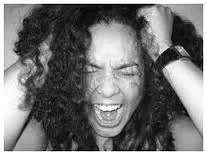OCD refers to obsessive compulsive thoughts and behaviour. These can include obsessive thoughts around four types of vulnerabilities which are: 1) health and illness, 2) danger, 3) poverty and 4) losing control. Specifically, we can think obsessively about sex, death, relationships and contamination, amongst others. We may behave compulsively by cleaning, checking and double-checking, repeatedly asking our partner the same question, for example. We also tend to avoid certain situations which makes us feel particularly anxious. On a physical level, it is common to experience a tightness in our chests, shallow breathing, sweaty palms, palpitations, dizziness or brain fog when in the grips of obsessive and compulsive thoughts and behaviours. We may also generally feel low in mood, lonely, empty and tired because of our condition.
How To Improve Self-Esteem and Self-Confidence.
If our self-esteem is based on achievements and praise it is like the little pigs House of Straw. One puff and it is all blown down. What is missing is a robust and continuous sense of self-worth which is independent of our achievements whether they be glorious, embarrassing, admirable or downright disappointing.
Failing demands we unshackle our sense of self from our performance. It means we separate our sense of being a lovable and worthy human being from the sometime idiotic, regrettable acts we might commit as a fallible person. It means growing up and connecting with our innate sense of self- worth rather than viewing ourselves through the lens we think others see us through.
When your heart shouts ‘yes’, your ‘gut’ grunts ‘no’ and your head screams ‘I don’t f**king know!!’ - 3 Easy Ways to Make Hard Decisions
What should I do? This is a question that takes up a lot of headspace in a lot of people, a lot of the time. I hear it from my clients. I hear it as I ask myself the same question. “Should I relocate to the town or country?” “Should I quit my job or not?” “Should I stay with him/her or go?” “Should I invest or save?” “Should I buy the dress or the jeans?” Decisions. Why are they often so difficult? How come we can get so tied up in knots trying to make them?
The key to contentment - self approval
A common thread that runs through a lot of the issues my clients bring is validation. By validation I mean the process of being confirmed as ‘ok’, ‘acceptable’ or ‘good enough’. For many individuals this sense of being ‘ok’ is derived from others or how we imagine others think of us. We need others to consider us interesting in order for us to feel interesting. We need others to think that we are beautiful in order to feel beautiful. We need others to think that we are intelligent in order to feel intelligent. We need others to give us permission to feel ok before we give ourselves permission to feel ok.
Getting Grounded
I mentioned in my previous article on social anxiety that it was important to get as grounded as possible. When we feel anxious we tend to breathe more quickly and less fully. As a result we can become heady and have physical symptoms such as feeling dizzy, spaced out or numb. Consequently we no longer feel balanced and find it difficult to get in touch with other more supportive states that counter the anxious thoughts for example excitement, curiosity or confidence. Grounding involves being more in our bodies and less in our heads.
3 Steps to Beating Social Anxiety
Social anxiety is the inner voice that tells us, whilst we are in, or are contemplating being in a social situation, that we are not good enough, not interesting enough, that others are judging us negatively. It can be accompanied by shyness however we can have social anxiety without being shy. This critical inner voice can become so insistent and powerful that it builds a wall between the other/s and us, and we are no longer fully present and available to engage freely with them.







